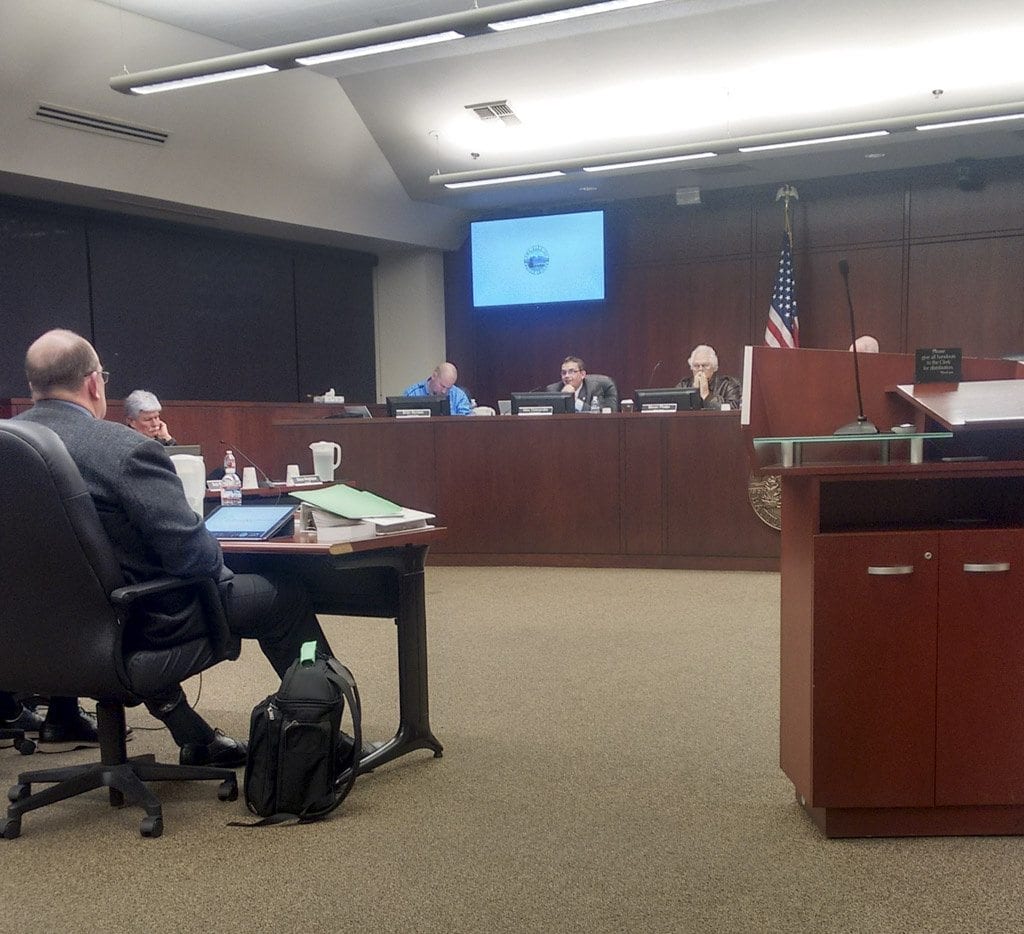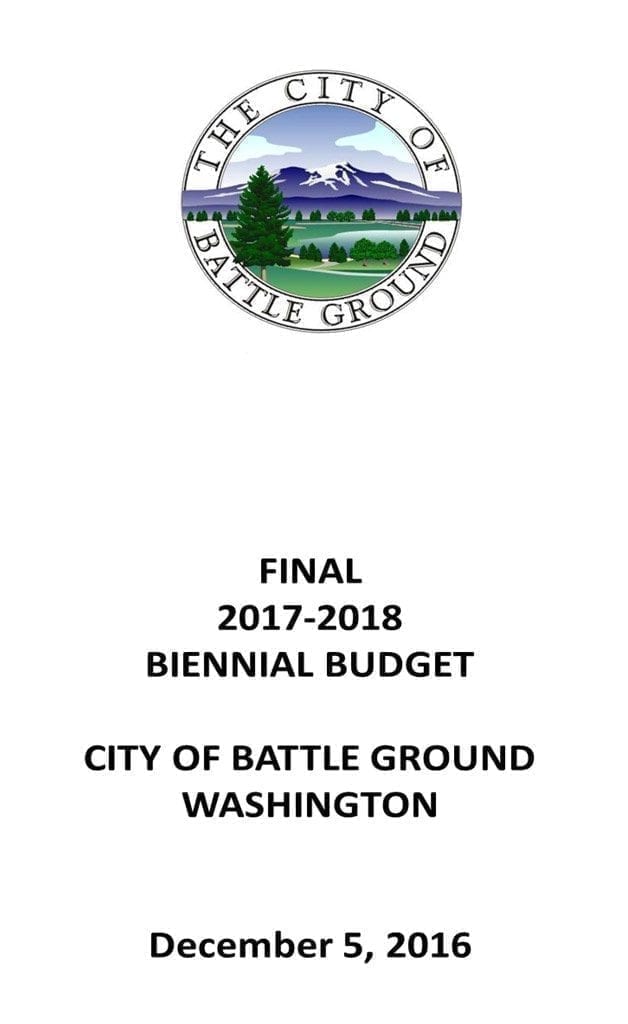BATTLE GROUND — After a lengthy discussion that at times included some frustration from both Battle Ground City Council members and city staff Monday night, council members voted 5-1 to approve the city’s 2017-2018 biennial budget. Council member Mike Dalesandro voted against approving the budget.
The 2017-2018 biennial budget is made up of $68,625,141 in revenues and $64,153,935 in estimated expenditures. The $68.6 million budget is almost a $14 million increase from the $55 million 2015-2016 biennial budget.
In her presentation to city council members Monday night, Finance Director Maggie Smith outlined some of the council priorities that were used to guide city staff as they constructed the 2017-2018 budget. Priorities that council members set after a budget work session that lasted several hours back in October included public safety, livability, beautification, efficiencies and more.

After Smith’s presentation, several council members expressed concern and frustration that not enough money was allocated in the budget for the council priorities that they had set.

“We spent five hours on a Saturday (back in October) setting council goals and priorities,” Council member Shane Bowman said. “We spent all this time, we have these council goals and priorities, we hold the checkbook and we have $1.3 million (in discretionary funds from the general fund), and only a quarter ($300,000) of that money is going to the council priorities. If we take our goals and priorities, the money is there. If they city says ‘this is what we’re going to give to appease council and then we’re going to take this for this, and this for this,’ this should’ve came back to us first.”
“Twenty-five percent (of the $1.3 million) went to council priorities,” City Manager Jeff Swanson told the council. “We have other increases in expenses that we need to pay, like the CRESA contract increase, personnel, other increases in contracts, etc.”
Mayor Philip Johnson expressed that he was also “disappointed” with some aspects of the presented budget.
“When we (council) first all met in October to discuss budget priorities I was concerned about how the city looked,” Johnson said. “There is nothing in the budget that tells me that we’re going to buy any mulch or that we’re going to do a better job of cutting grass. I’ve been asking for mulch for four straight years, but I’m always told that it’s expensive and we don’t have enough money. Well, now we do have the money, but there’s still no mulch. I know that’s shallow, but I live here. All six of us live here and I want the city I live in to look its best.”
Johnson then said he was irritated and instructed council that they would take a five-minute break from the meeting.

After returning from the five-minute break, council member Brian Munson told staff he doesn’t understand why they aren’t able to meet their council priorities with the budget.
“We’re not going to get what we asked for, but we’re the ones writing the check for you,” Munson.
Swanson then stressed to council that they need to remember the budget projects an increase of $600,000 for council priorities in a biennium, not just one year.
“All of that is going to public safety, which is council’s number one priority,” Swanson said.
“My concern is with the general fund this time around,” Council member Mike Dalesandro said. “When we were first presented the preliminary budget, we were told things were good and at the end of 2016 things will be better than we thought, the word ‘surplus’ has been thrown around. I look at it and I see the projected number that we are looking at at the end of the year, I see the excess revenues and understand all the needs we have as well. My biggest concern is that we are in a situation where things are decent right now and we have an opportunity if we want to obligate some funds to some things. The word ‘sustainability’ comes to mind again. This budget is sustainable for those two years, but what about after that?”
Smith reiterated that expenses still outweigh the revenues, saying that expenses are growing quicker than the revenue side.
“I wouldn’t call it a surplus,” she said.
Council member Chris Regan and Deputy Mayor Steven Phelps also expressed reluctance to support the budget at this point, as they felt like they needed some additional time to look at all of the budget information.
“The ‘prudent man’ essential says, ‘I have a vision of how things are in my life and therefore this is how I look at pretty much every decision I make,’” Phelps said. “I think we have access to more information then we need to digest.”
The final 2017-2018 biennial budget includes a change in the property tax levy that was originally included in the preliminary budget. Instead of choosing to increase property taxes by the allowable 1 percent, council members voted to instead “bank” the 2017 property tax levy capacity for a future levy year. The resolution that they passed allows council to levy at a future date the property taxes deferred in 2017 for a budget requiring “substantial need.” If council would have chosen to raise the property tax levy by 1 percent it would have added an additional $28,000 to the 2017-2018 budget.
The 2017-2018 biennial budget ordinance will take effect Jan. 1, 2017.




